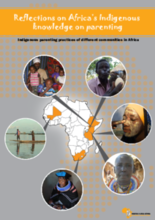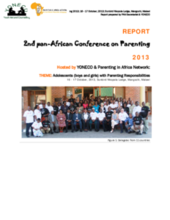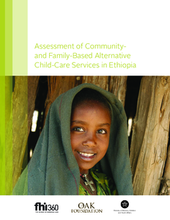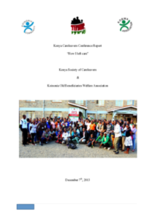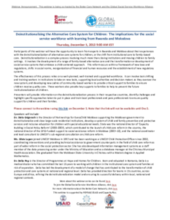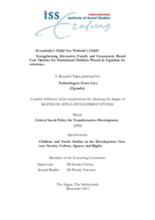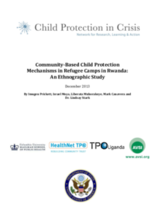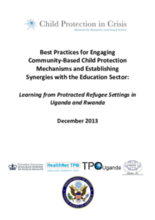Displaying 1271 - 1280 of 1622
This publication, produced by the Parenting in Africa Network (PAN), highlights the skillful parenting practices of several pastoral communities in Africa.
This report summarises the presentations and conclusions from the 2nd Pan-African annual conference on parenting held on the 16-17th October 2013 in Malawi on the theme of "Understanding realities of teenage parenting: a special focus on adolescents (boys and girls) with parenting responsibilities."
This assessment conducted by FHI 360, with support from Ethiopia's Ministry of Women, Youth and Children Affairs (MoWYCA) and the OAK Foundation aimed to generate evidence about formal community and family- based alternative child care services and service providing agencies in Ethiopia, with a particular focus on magnitude, quality and quality-assurance mechanisms.
Koinonia Old Beneficiaries Welfare Association and Kenya Society of Careleavers report on their annual Careleavers Conference that took place on December 7th, 2013 at the Shalom House, Dagoretti Corner.
Webinar co-hosted by Better Care Network and the Global Social Service Workforce Alliance on Deinstitutionalizing the Alternative Care System for Children: The implications for the social service workforce with learning from Rwanda and Moldova.
The study examined alternative family and community care options and how they can be strengthened; cultural attitudes and perceptions of the communities and experiences of prospective foster and adoptive parents as regards reunification, kinship care, fostering and adoption.
The purpose of this research is to learn about community-based child protection processes and mechanisms in two refugee camps in Rwanda – Gihembe and Kiziba.
The aim of this note is to outline some ways of engaging with community-based child protection mechanisms (CBCPMs), especially within the education sector, which apply in both urban and rural protracted refugee settings.
This is a statutory instrument detailing rules and regulations surrounding alternative care homes. This instrument defines what is necessary for the care and well-being of children within alternative care, and what they require medically and socially.
This article shares the story of Hana, a 13 year-old girl who had been adopted from Ethiopia three years previously, died in the care of her adoptive family in Washington state, USA.

